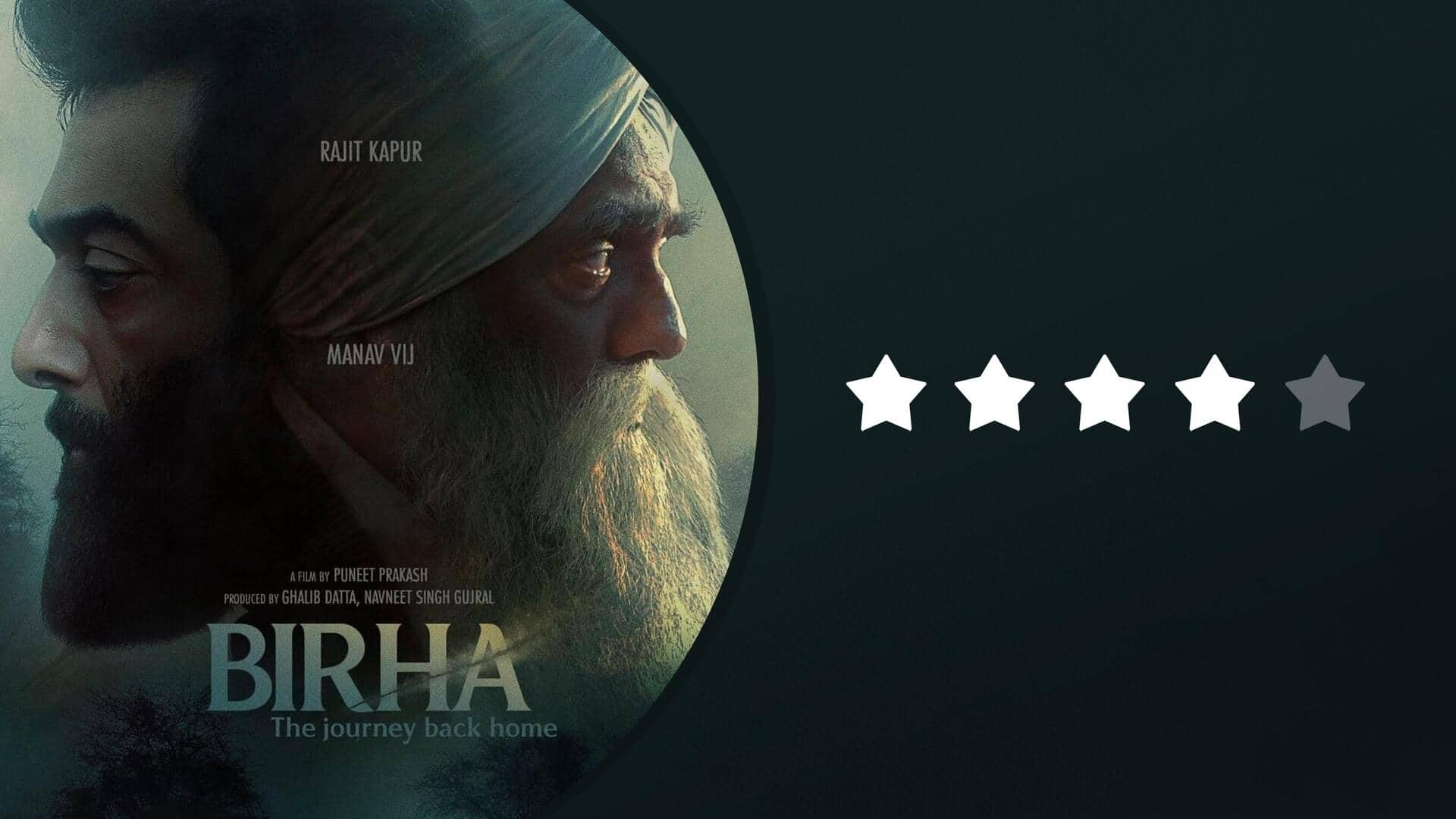
'Birha' review: Man's futile search for home and identity
What's the story
Birha: The Journey Back Home—directed by Puneet Prakash and starring Manav Vij and Rajit Kapur—is the second film to grace JioCinema's digital film festival, which kicked off on Friday with The Comedian. Engaging, poignant, and replete with powerful emotions, Birha is a testament to its actors' extraordinary craft and is one of those films that you think about much after the credits roll.
Plot
What's the story of this short film
Birha, featuring dialogues in Punjabi with English subtitles, is the story of Inder, who leaves home against his parents' wishes to settle in Canada. The matter is aggravated infinitely because he steals money and jewelry from them to sail through this journey, leading to a permanent rupturing of relationships. Twenty years later, he comes back, but by now, it is too late.
#1
Themes, symbolism, and title's significance
The word birha implies separation or absence, and the title gleams with meaning in this story that deals with a generational gap between a father and a son. Both are right in their own ways—while Inder's eyes sparkle with the aspirations of a future abroad, his father wants to stay rooted in his village. Thus, Inder's dreams drive an irreparable, cruel wedge between them.
#2
Inder's search for his identity
Initially, when Inder drags his feet to his house, he quietly looks around—his eyes search for a sign, any sign of familiarity—something that can transport him to the time when he didn't feel like a stranger in his own home, a foreigner on his own land. This is his search for his identity, a hunt for a place that he can call home.
#3
Acting: Vij and Kapoor pillars of 'Birha'
Short films mostly stand on two pivots—acting and script—aspects Birha doesn't compromise on. Vij and Kapoor bring alive the helplessness, heartache, despondency, anguish, and angst that define their characters, lending the film its soul. When the story takes a leap, and we meet an aged Kapoor, I almost couldn't believe it was the same actor—so strikingly different were his gait, mannerisms, and demeanor.
#4
Contrast in first few scenes—reflection of 'Birha's story
Another aspect that engrossed me in the first few frames was the lighting and the apparent contrast between the present track and the flashbacks. When Inder's childhood memories flash in front of his eyes, they transpire during the day: bright, full of vigor and hope. But when the adult Inder returns during twilight, a sense of ending, despondency, and gloom begins to creep in.
#5
What does one's home really mean
In addition to underlining the generation gap and filial piety, Birha also asks questions about what it means to have a home of one's own. Inder leaves his parents' place to build his nest in Canada, but in the process, he leaves behind his roots. When he returns, it's almost as if the house chides and rejects him. The house, too, is a character.
Verdict
We recommended streaming this short film on JioCinema
I might not understand Punjabi through and through, but nothing about Birha is lost in translation. The emotions of helplessness, frustration, grief, and fear are palpable on the screen—sentiments are not at the mercy of semantics, after all. The ending left me with an ache in my heart, and once the film finished, I immediately wanted to press play again. Rating: 4/5 stars.